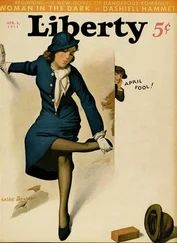Дэшил Хэммет - The Glass Key
Здесь есть возможность читать онлайн «Дэшил Хэммет - The Glass Key» весь текст электронной книги совершенно бесплатно (целиком полную версию без сокращений). В некоторых случаях можно слушать аудио, скачать через торрент в формате fb2 и присутствует краткое содержание. Год выпуска: 1931, Жанр: Крутой детектив, на английском языке. Описание произведения, (предисловие) а так же отзывы посетителей доступны на портале библиотеки ЛибКат.
- Название:The Glass Key
- Автор:
- Жанр:
- Год:1931
- ISBN:нет данных
- Рейтинг книги:5 / 5. Голосов: 1
-
Избранное:Добавить в избранное
- Отзывы:
-
Ваша оценка:
- 100
- 1
- 2
- 3
- 4
- 5
The Glass Key: краткое содержание, описание и аннотация
Предлагаем к чтению аннотацию, описание, краткое содержание или предисловие (зависит от того, что написал сам автор книги «The Glass Key»). Если вы не нашли необходимую информацию о книге — напишите в комментариях, мы постараемся отыскать её.
The Glass Key — читать онлайн бесплатно полную книгу (весь текст) целиком
Ниже представлен текст книги, разбитый по страницам. Система сохранения места последней прочитанной страницы, позволяет с удобством читать онлайн бесплатно книгу «The Glass Key», без необходимости каждый раз заново искать на чём Вы остановились. Поставьте закладку, и сможете в любой момент перейти на страницу, на которой закончили чтение.
Интервал:
Закладка:
The front door was opened by a red‑faced barrel‑bodied short man in a long blue night‑shirt. "Holy Maria, you're a mess!" he gasped when Ned Beaumont came into the light from the doorway.
"Phone," Ned Beaumont said.
The red‑faced man caught him as he swayed. "Here," he said gruffly, "tell me who to call and what to say. You can't do anything."
"Phone," Ned Beaumont said.
The red‑faced man steadied him along a hallway, opened a door, said: "There she is and it's a damned good thing for you the old woman ain't home or you'd never get in with all that mud on you."
Ned Beaumont fell into the chair in front of the telephone, but he did not immediately reach for the telephone. He scowled at the man in the blue night‑shirt and said thickly: "Go out and shut the door."
The red‑faced man had not come into the room. He shut the door.
Ned Beaumont picked up the receiver, leaned forward so that he was propped against the table by his elbows on it, and called Paul Madvig's number. Half a dozen times while he waited his eyelids closed, but each time he forced them open again and when, at last, he spoke into the telephone it was clearly.
"'Lo, Paul — Ned. Never mind that. Listen to me. Mathews's committed suicide at his place on the river and didn't leave a will. Listen to me. This is important. With a lot of debts and no will naming an executor it'll be up to the courts to appoint somebody to administer the estate. Get that?. Yes. See that it comes up before the right judge — Phelps, say — and we can keep the Observer out of the fight — except on our side — till after election. Got that?. All right, all right, now listen. That's only part of it. This is what's got to be done now. The Observer is loaded with dynamite for the morning. You've got to stop it. I'd say get Phelps out of bed and get an injunction out of him — anything to stop it till you can show the Observer's hired men where they stand now that the paper's going to be bossed for a month or so by our friends.
I can't tell you now, Paul, but it's dynamite and you've got to keep it from going on sale. Get Phelps out of bed and go down and look at it yourselves. You've got maybe three hours before it's out on the streets.
That's right. What?. Opal? Oh, she's all right. She's with me. Yes, I'll bring her home. And will you phone the county people about Mathews? I'm going back there now. Right."
He laid the receiver on the table and stood up, staggered to the door, got it open after the second attempt, and fell out into the hallway, where the wall kept him from tumbling down on the floor.
The red‑faced man came hurrying to him. "Just lean on me, brother, and I'll make you comfortable. I got a blanket spread over the davenport so we won't have to worry about the mud and—"
Ned Beaumont said: "I want to borrow a car. I've got to go back to Mathews's."
"Is it him that's dead?"
"Yes."
The red‑faced man raised his eyebrows and made a squeaky whistling sound.
"Will you lend me the car?" Ned Beaumont demanded.
"My God, brother, be reasonable! How could you drive a car?"
Ned Beaumont backed away from the other, unsteadily. "I'll walk," he said.
The red‑faced man glared at him. "You won't neither. If you'll keep your hair on till I get my pants I'll drive you back, though likely enough you'll die on me on the way."
Opal Madvig and Eloise Mathews were together in the large ground‑floor room when Ned Beaumont was carried rather than led into it by the red‑faced man. The men had come in without knocking. The two girls were standing close together, wide‑eyed, startled.
Ned Beaumont pulled himself out of his companion's arms and looked dully around the room. "Where's Shad?" he mumbled.
Opal answered him: "He's gone. All of them have gone."
"All right," he said, speaking difficultly. "I want to talk to you alone."
Eloise Mathews ran over to him. "You killed him!" she cried.
He giggled idiotically and tried to put his arms around her.
She screamed, struck him in the face with an open hand.
He fell straight back without bending. The red‑faced man tried to catch him, but could not. He did not move at all after he struck the floor.
VII.The Henchmen
1
Senator Henry put his napkin on the table and stood up. Rising, he seemed taller than he was and younger. His somewhat small head, under its thin covering of grey hair, was remarkably symmetrical. Aging muscles sagged in his patrician face, accentuating its vertical lines, but slackness had not vet reached his lips, nor was it apparent that the years had in any way touched his eyes: they were a greenish grey, deepset, not large but brilliant, and their lids were firm. He spoke with studied grave courtesy: "You'll forgive me if I carry Paul off upstairs for a little while?"
His daughter replied: "Yes, if you'll leave me Mr. Beaumont and if you'll promise not to stay up there all evening."
Ned Beaumont smiled politely, inclining his head.
He and Janet Henry went into a white‑walled room where coal burned sluggishly in a grate under a white mantelpiece and put somber red gleams on the mahogany furniture.
She turned on a lamp beside the piano and sat down there with her back to the keyboard, her head between Ned Beaumont and the lamp. Her blond hair caught lamplight and held it in a nimbus around her head. Her black gown was of some suèdelike material that reflected no light and she wore no jewelry.
Ned Beaumont leaned over to knock ash from his cigar down on the burning coal. A dark pearl in his shirt‑bosom, twinkling in the fire's glow as he moved, was like a red eye winking. When he straightened, he asked: "You'll play something?"
"Yes, if you wish — though I don't play exceptionally well — but later. I'd like to talk to you now while I've an opportunity." Her hands were together in her lap. Her arms, held straight, forced her shoulders up and in towards her neck.
Ned Beaumont nodded politely, but did not say anything. He left the fireplace and sat not far from her on a sofa with lyre ends. Though he was attentive, there was no curiosity in his mien.
Turning on the piano‑bench to face him directly, she asked: "How is Opal?" Her voice was low, intimate.
His voice was casual: "Perfectly all right as far as I know, though I haven't seen her since last week." He lifted his cigar half a foot towards his mouth, lowered it, and as if the question had just come to his mind asked: "Why?"
She opened her brown eyes wide. "Isn't she in bed with a nervous break‑down?"
"Oh, that!" he said carelessly, smiling. "Didn't Paul tell you?"
"Yes, he told me she was in bed with a nervous break‑down." She stared at him, perplexed. "He told me that."
Ned Beaumont's smile became gentle. "I suppose he's sensitive about it," he said slowly, looking at his cigar. Then he looked up at her and moved his shoulders a little. "There's nothing the matter with her that way. It's simply that she got the foolish idea that he had killed your brother and — still more foolishly — was going around talking about it. Well, Paul couldn't have his daughter running around accusing him of murder, so he had to keep her home till she gets the notion out of her head."
"You mean she's—" she hesitated: her eyes were bright " — she's‑well — a prisoner?"
"You make it sound melodramatic," he protested carelessly. "She's only a child. Isn't making children stay in their rooms one of the usual ways of disciplining them?"
Janet Henry replied hastily: "Oh, yes! Only—" She looked at her hands in her lap, up at his face again. "But why did she think that?"
Ned Beaumont's voice was tepid as his smile. "Who doesn't?" he asked.
She put her hands on the edge of the piano‑bench beside her and leaned forward. Her white face was earnestly set. "That's what I wanted to ask von, Mr. Beaumont. Do people think that?"
Читать дальшеИнтервал:
Закладка:
Похожие книги на «The Glass Key»
Представляем Вашему вниманию похожие книги на «The Glass Key» списком для выбора. Мы отобрали схожую по названию и смыслу литературу в надежде предоставить читателям больше вариантов отыскать новые, интересные, ещё непрочитанные произведения.
Обсуждение, отзывы о книге «The Glass Key» и просто собственные мнения читателей. Оставьте ваши комментарии, напишите, что Вы думаете о произведении, его смысле или главных героях. Укажите что конкретно понравилось, а что нет, и почему Вы так считаете.







